Female Smokers Risk Of Lung Cancer Death Has Risen Dramatically  Female smokers have a much greater risk of death from lung cancer and chronic obstructive lung disease (COLD) in recent years than did female smokers 20 or 40 years ago, reflecting changes in smoking behaviour. The increase in risk of death from lung cancer in female smokers has been large
enough to completely offset improvements in longevity from medical advances that have reduced death rates in the rest of the population over the last 50 years. Women smokers today smoke more like men than women in previous generations, beginning earlier in adolescence and smoking more cigarettes per day.
http://www.medicalnewstoday.com/releases/255340.php
New Brain Tumour Radiation
New Therapy Offered for Patients with Recurrent Glioblastoma.
Non-invasive treatment uses alternating electrical fields to disrupt tumour growth. Experts together with a multidisciplinary team of oncologists and neurosurgeons at the University of Maryland Marlene have begun offering a new treatment for patients with recurrent glioblastoma, a deadly type of brain tumour that is resistant to chemotherapy and radiation. The treatment, known as Tumour Treating Fields (TTF), is delivered to the patient via a device that fits over the scalp like a bathing cap. It works by emitting alternating electrical fields to the tumour that disrupt the division of cancer cells and stop tumour growth. We are very limited in what we have been able to offer these patients once they have had chemotherapy and radiation and their tumour progresses,” This new therapy has shown survival in this patient population that is comparable to that achieved with chemotherapy, but with fewer side effects.”
http://www.umgcc.org/radiation_oncology_program/novoTTF.htm#ixzz2JSCZ8Icu
Call for soft drink sugar tax in Budget
Leading medical bodies are calling for a 20p-per-litre levy on soft drinks to be included in this year's Budget. More than 60 organisations, including the Royal College of Paediatrics and Child Health, are backing the recommendation by food and farming charity Sustain. They say it would raise £1bn a year in duty to fund free fruit and meals in schools to improve children's health.
http://www.bbc.co.uk/news/health-21228122
The Battle Over Alcohol Pricing 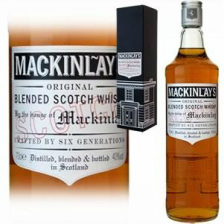 Saskatchewan is a long way from the British boozer and the aisles of high street supermarkets. But the experience of the Canadian prairie province could have a defining impact on our society. The region, home to just over 1m people, is one of the few places in the world to have first-hand experience of minimum pricing for alcohol. And as such it is forming one of the key pieces of evidence as ministers weigh up whether to push ahead with what would be a controversial policy. Evidence from Saskatchewan, which has a slightly different policy as there are different minimum prices for different types of drinks, has shown that a 10% rise in price leads to an 8% fall in alcohol consumption. While the last few years has seen alcohol consumption tail off, the current figure is still 40% higher than it was 40 years ago. Where we are drinking has also changed dramatically. In the early 1970s 90% of alcohol was consumed in pubs and restaurants, but these days the rise in the availability of cheap alcohol in supermarkets means the split between drinking in and out of home is now almost 50:50.
http://www.bbc.co.uk/news/Cancer fight 'hampered in UK by stiff upper lip'
 The UK's "stiff upper lip" culture may explain why it lags behind other countries when it comes to beating cancer, say experts. Researchers, who surveyed nearly 20,000 adults in six high-income countries, said they found embarrassment often stopped Britons visiting the doctor. Respondents in the UK were as aware of cancer symptoms as those in Australia, Canada, Denmark, Norway and Sweden, but more reluctant to seek help, they said. A third feared wasting a doctor's time. One in six of the men and women aged 50-and-over surveyed in the UK was embarrassed about sharing their symptoms with a doctor.
http://www.bbc.co.uk/news/health-21242871Call for soft drink sugar tax in Budget
 Leading medical bodies are calling for a 20p-per-litre levy on soft drinks to be included in this year's Budget. More than 60 organisations, including the Royal College of Paediatrics and Child Health, are backing the recommendation by food and farming charity Sustain. They say it would raise £1bn a year in duty to fund free fruit and meals in schools to improve children's health.
http://www.bbc.co.uk/news/health-21228122
Chemo Pills Are Effective, But Patients May Skip Doses 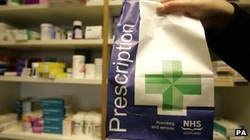 Although chemotherapy pills are able to target certain cancers better than traditional intravenous drugs, some patients have trouble taking them. More than 40 percent of patients took the wrong number of pills or skipped doses altogether. They noted severe side effects and complicated instructions for some oral prescriptions often are to blame. Some require patients to take pills several times a day or cycle their doses, taking one pill a day for three weeks, then stopping for a week before starting again. And some patients take two types of pills to treat their cancer or have multiple medications for other chronic conditions. It can be very complicated. “It's cutting-edge treatment, but we don't know enough about it yet," said Barbara Given, associate dean for research in the university's College of Nursing. "People think if they had a life-threatening disease and their doctor recommended treatment, they'd follow the recommendations. But it's really not that simple." http://www.cancercompass.com/cancer-news/article/43412.htm?c=NL20130124 Self-help books for treating depression
 New research suggests self-help books could treat depression better than antidepressants or therapy, relatively cheaply and without side-effects. One in five of us will get depressed at some point in our lives. A GP argues that antidepressants are prescribed too readily, for too long, and are less effective than people think. Research suggests another way of dealing with depression. Instead of medication, it recommends self-help books.They're relatively cheap and, unlike antidepressants, won't make you constipated or lose your libido. There is already support from the Royal College of Psychiatrists, which is involved in the Books on Prescription scheme, selecting books for libraries that can help people with mental health problems. So should you turn to literature to help treat your depression?
http://www.guardian.co.uk/lifeandstyle/2013/jan/28/useful-self-help-books-treat-depressionPROTON THERAPY
Physicians at the Proton Treatment Centre at Loma Linda University & Medical Centre in southern California are keeping a close eye on a promising clinical study designed to treat patients using proton therapy. The clinical study, gives patients with early-stage, medically inoperative lung cancer an alternative to x-ray radiation therapy.
http://www.proton-therapy.org/pr08.htm
Liver cancer chemotherapy procedure used in UK for first time 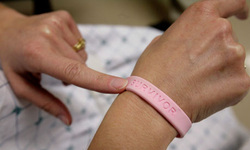 Cancer care has reached a "landmark" with a procedure being used for the first time in the country to treat the liver disease by "bathing" it in chemotherapy. Dr Brian Stedman, a radiologist at SouthamptonGeneral Hospital, has used the treatment, which isolates the organ from the body for 60 minutes during the process, on two patients. He explained that by separating the organ and diverting the blood supply past the liver, drugs could be delivered directly and at a higher dosage.The treatment, known as chemosaturation therapy or percutaneous hepatic perfusion (PHP) could go on to be used for other cancers. A US study shows those who had PHP survived longer than those who had standard treatment. Dr Stedman said: "To cut off an organ from the body for 60 minutes, soak it in a high dose of drug and then filter the blood almost completely clean before returning is truly groundbreaking. "Previously, the outlook for patients specifically suffering from cancer which has spread to the liver has been poor because the effect of standard chemotherapies is limited by the unwanted damage the drug causes to the rest of the body." Stedman, added that the treatment could go on to be used for colon, breast and melanoma cancers. In addition to the US, the technique has been used in Germany, Italy,Ireland and France.
http://www.guardian.co.uk/science/2012/nov/12/liver-cancer-chemotherapy-procedure-uk
New Method Predicts Brain Cancer Outcome And Quickly Shows If Therapy Treatment Is Effective
 The critical question shortly after a brain cancer patient starts treatment is how well is it working? But there hasn't been a good way to gauge that. Now researchers have developed a new method to predict an individual patient's brain tumour growth. This growth forecast will enable physicians to rapidly identify how well the tumour is responding to a particular therapy. The approach allows a quick pivot to a new therapy if the current one isn't effective. The method will advance brain tumour treatment by helping distinguish effective treatments from ineffective ones. http://www.medicalnewstoday.com/releases/255338.php
How Does CyberKnife Radiation Work 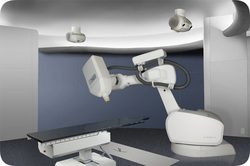 The CyberKnife VSI System enables radiation oncologists to deliver high doses of radiation with pinpoint accuracy to a broad range of tumours throughout the body, including the brain, spine, lungs, prostate, liver, pancreas and kidneys. Because the Cyberknife is a non-invasive form of
radiation therapy, it has no complications or side effects. Prior to the procedure, a high-resolution CT scan determines the size, shape and location of the tumour. The image data is then digitally transferred to the CyberKnife System’s workstation, where the radiation dose to the tumour location is set. The patient is comfortably positioned on a cushioned table and the system’s computer-controlled robot slowly moves around the table, targeting radiation to the tumour from various angles while sparing surrounding healthy tissue. The system’s sophisticated software tracks the tumour and continually adjusts the radiation treatment automatically accounting for patient or tumour movement. Each treatment session lasts between 30 to 90 minutes for one to five days, depending on the location and type of tumour being treated.
Mastectomy and Breast reconstruction
Reconstruction after breast-conserving surgery
Reconstruction after mastectomy
Types of reconstruction
If you are going to have a mastectomy, you will usually be able to have breast reconstruction. This can be done at the same time (immediate reconstruction) or months or years later (delayed reconstruction). You should be given the chance to discuss reconstruction beforehand. National guidance recommends that breast
reconstruction should be discussed with all patients who are being advised to have a mastectomy. Breast Cancer Care has worked with the British Association of Plastic Reconstructive and Aesthetic Surgeons and the Association of Breast Surgery to produce a summary for patients of the guidelines.
http://www.breastcancercare.org.uk/breast-cancer-information/treating-breast-cancer/surgery/reconstruction
NEEDING SOME COSMETIC HELP
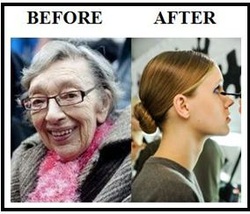 THE 3D FACE-LIFT
The three dimensional face-lift is a new breed of less-invasive facial surgery that aims to plump out the face by pulling tissue inside the face back on to the cheekbones to give it a more youthful look rather than cutting away and tightening the skin as used in the more traditional face-lift.
What are the advantages?
You will have fewer scars because the process does not involve as much cutting away of the skin. The technique aims to give a fuller, youthful appearance rather than a tight wind-tunnel - look. This technique is particularly suitable for younger patients - in their 40s and 50s - whose skin is not too wrinkled.
What's involved?
The surgeon makes incisions by each ear to reach the inner face tissue that may have slipped down the face due to ageing. It is pulled back upwards on the cheekbones.
How long does it take to recover?
Between three and ten days.
When is it available?
Not yet available in Britain, but a number of London surgeons are currently showing interest in bringing the technique to Britain.
Cost: £4,000 - £5,000
New Drug Protects Against Side Effects Of Chemotherapy 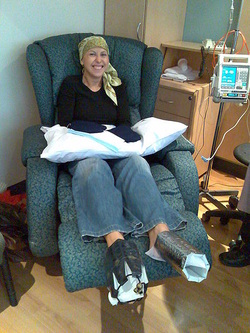 A drug developed at Linkoping University in Sweden protects against the side effects of cancer treatments while strengthening the effects on the tumour. An international drug evaluation is now starting up on a larger group of patients. The results of the studies with the compound, known as calmangafodipir, were published in the cancer journal Translational Oncology .The research was initiated on a substance called mangafodipir, which was used as a contrast media in magnetic resonance scans. But pharmacologists discovered that it also protected healthy cells in connection with cancer treatment. It was found that the substance could affect the formation of oxygen radicals, which are a cause of side effects in chemotherapy. For example, the number of white blood cells decreases drastically in almost all patients, which opens the door to infections that could be fatal. http://www.medicalnewstoday.com/releases/255230.phpUsing DNA And Nanoparticles To Deliver Chemotherapy
A major problem with standard chemotherapy is that is goes everywhere, harming many normal cells and causing serious side-effects. For years, researchers have been looking for ways to deliver the drugs directly to cancer cells. Now a new approach adds another way to kill cancer cells. The approach is very clever and exciting, but a bit complicated to explain. When the drug-DNA-nanoparticles are injected, the particles will bind to and accumulate in cancer cells. After they do that, the tumours are exposed to infrared radiation. This does two things, the DNA strands separate, releasing the drug, and the NIR heats up the particles enough to kill the cancer cells.
Pretty darn clever...and it works!
http://www.cancerquest.org/articles/dna-gold-nanoparticles-chemotherapy-delivery.html
Kidney disease 'biggest threat' for diabetics
 Keeping your kidneys healthy could be one of the best ways to extend your life if you have Type 2 diabetes. Figures from 2012 suggest only seven in 10 patients get vital annual checks. Approximately 5% of people in the UK have been diagnosed with diabetes, and careful management of their condition through a combination of medication and lifestyle changes can mean it has relatively little impact on their lives. However, if the disease has been present for some time prior to diagnosis, or is poorly managed afterwards, the risk of life-changing complications rises. These include eye and lower limb problems, and kidney problems. Cathy Moulton, a clinical adviser at Diabetes UK, said that if detected early, diabetic kidney disease could be controlled using blood pressure medication. However, the charity's 2012 report found that as many as three in 10 patients were missing out on the simple blood or urine tests that would reveal their kidney problems.
http://www.bbc.co.uk/news/health-21184232
Female smoking death risk 'has soared'  Women smoking nowadays are far more likely to die as a result of their habit than they were in the 1960s, according to a new study. Changing habits such as starting earlier and smoking more cigarettes have been blamed on dramatically increased risks of lung cancer. The trends show death rates in women have caught up with men. http://www.bbc.co.uk/news/health-21168516Scots GPs 'could save NHS £26m'
 GPs could save Scotland's NHS £26m a year without affecting patient care, the country's spending watchdog has said. Audit Scotland said the savings could be made by reducing waste and cutting the use of less suitable medicines. But it found the health service had made major improvements to how it manages general practice prescriptions. Spending on drugs has fallen in real terms over the past seven years despite a rise in the number of prescriptions. Audit Scotland said GP prescriptions cost the NHS almost £1bn a year, and accounted for 70% of all NHS spending on drugs in Scotland. Its Prescribing in General Practice in Scotland report said family doctors were getting more support and guidance on their prescribing. http://www.bbc.co.uk/news/uk-scotland-21168933Doctors Reveal The Treatments They Would Avoid;
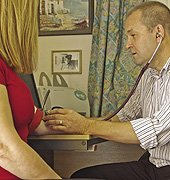 Don’t have any operation or procedure without first reading the guidelines for the condition, looking at the complication rates and the risk of doing nothing.
“Prostate cancer is far more common – and, usually, less serious – than most people realize. In elderly men, it's virtually normality. Most prostate cancers lie dormant and harmless, and are something men die with, not of. So having a PSA (Prostate Specific Antigen) test may end up giving you information you would have been better off not knowing. That's if you can trust the result: it's notorious for inaccuracies, with false positives, false negatives and an inability to distinguish between harmless prostate cancers and the less common more aggressive forms. Which is why, when men ask for the test, they're potentially opening Pandora's Box. We try to guide them through the maze of ifs, buts and maybes. Sure, in theory it could save your life. But in practice it could well lead to worry, unpleasant biopsies and unnecessary, traumatic surgery.”
Tony Copperfield, GP and author of Sick Notes
Lifetime risk of prostate cancer 'has trebled'  Prostate cancer risk has risen to such a degree that one in every seven boys will develop it, projections suggest. Experts say the trebling of lifetime risk - up from one in 20 in 1990 - is partly because doctors are spotting more cases and partly because men are living longer meaning more develop it. Cancer Research UK, which compiled the data and made estimates for boys born in 2015, says although the cancer rates are rising, deaths are going down. They have dropped by 20% in 20 years
. http://www.bbc.co.uk/news/health-21144676Breast cancer drug tamoxifen recommended for 'high risk' women
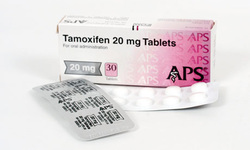 The British-invented drug has changed the course of breast cancer by preventing recurrences – but it can make life miserable for some. Tamoxifen, used to treat breast cancer, has saved the lives of millions of women. It is the nearest thing we probably have to a wonder drug. The drug, which is almost 50 years old, has changed the course of breast cancer saving the lives of millions of women – and it is cheap as chips because the patent has run out. It is prescribed for women whose tumours are responsive to hormones for five years after surgery. Tamoxifen, should be subscribed as a preventative measure for women with a family history of breast cancer. In the end, it will be for each woman to weigh up the risks and benefits for herself. For many with a high risk of cancer, it will be a huge relief to take a drug that provides some protection – but others may decide it is not for them.
http://www.guardian.co.uk/society/shortcuts/2013/jan/15/breast-cancer-drug-tamoxifen-side-effectsPASSIVE SMOKING

Breast Density and Cancer Risk: What Is the Relationship? 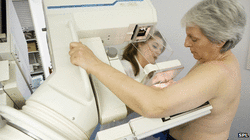 Women with dense breasts have been shown to have an increased risk of developing breast cancer; only age and BRCA1 and BRCA2 mutations increase risk more. Breast density is a radiologic phenomenon very different from the common notion of density as weight per unit of volume. Breast density relates to the fact that x-rays permeate different types of breast tissue differently. Each type of breast tissue reacts differently to x-rays. Fatty breast tissue is relatively translucent, allowing x-rays to pass through yielding dark areas on a mammogram. Epithelial and stromal tissues, on the other hand, block x-rays and appear as white areas. Breast lesions are not easily discernible in these areas since dense tissue and tumours both look white on film. Experts agree that dense areas on mammograms make cancer detection more difficult. Researchers don’t agree what causes some women’s breasts to be denser than others.
http://jnci.oxfordjournals.org/content/92/6/443.full
Childhood asthma 'admissions down' after smoking ban 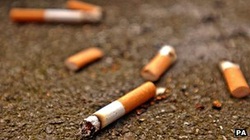 There was a sharp fall in the number of children admitted to hospital with severe asthma after smoke-free legislation was introduced in England. A study showed a 12% drop in the first year after the law to stop smoking in enclosed public places came into force. The authors say there is growing evidence that many people are opting for smoke-free homes as well. The fall was seen among boys and girls of all ages, across wealthy and deprived neighbourhoods, in cities and in rural areas. These findings reinforce evidence on the impact of smoke-free legislation from studies in North America and Scotland, which also showed a fall in hospital admissions for children with severe asthma attacks. The law in England has also resulted in fewer admissions for heart attacks. The need now was to do more to prevent children and young people from taking up smoking.
http://www.bbc.co.uk/news/health-21067532
Doctors Reveal The Treatments They Would Avoid;
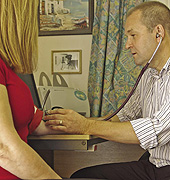 Don’t have any operation or procedure without first reading the guidelines for the condition, looking at the complication rates and the risk of doing nothing-
" I would avoid going into a general hospital if I had a diagnosis of dementia. People with dementia have difficulty finding their way around hospital buildings. Even the walk from your bed to the toilet and back is fraught with avoidable dangers: shiny floors, bad signage, distracting and disturbing noise, terrible lighting, poor colour contrast between floors and walls, invisible grab rails that blend into the decor, taps that don't look like taps and sinks with no plugs… So you wet yourself, or fall, or get back into the wrong bed, or get shouted at for moving about. Then you don't get as much pain relief as other patients with the same condition, because they might forget to feed and water you."
Professor June Andrews, director at the University of Stirling
Lung cancer UK price tag eclipses the cost of any other cancer 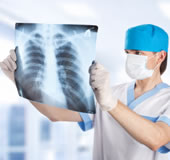 THE COST of lung cancer to the UK economy is £2.4 billion each year, far higher than the cost of any other cancer. This highlights the urgent need to continue to reduce the number of young people who become addicted to tobacco. Smoking causes more than eight in 10 lung cancers in the UK and around 157,000 children aged 11-15 start smoking in the UK each year. Each lung cancer patient costs the UK healthcare system £9,071 annually. This compares with £2,756 for bowel cancer, £1,584 for prostate cancer and £1,076 for breast cancer survivors. http://www.cancerresearchuk.org/cancer-info/news/archive/pressrelease/2012-11-07-lung-cancer-price-tag
NHS going paperless 'would save billions'  Health Secretary Jeremy Hunt wants the NHS to be
paperless by 2018 - a move a report says could help save the health service billions of pounds a year. In a speech, Mr Hunt will say a first step is to give people online access to their health records by March 2015. And by April 2018, any crucial health information should be available to staff at the touch of a button. http://www.bbc.co.uk/news/health-21033984
MSP consults on blue badge misuse law 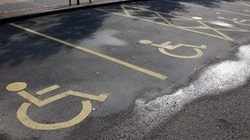 An MSP has launched a consultation on a proposed law to crack down on the fraudulent use of blue disabled badges. Dennis Robertson's private members' bill would see officials being given beefed up powers to confiscate badges which are not being correctly used. The blind MSP for Aberdeenshire West also wants a proper appeals process for applicants refused badges on eligibility grounds.
http://www.bbc.co.uk/news/uk-scotland-scotland-politics-21129281
|
























 RSS Feed
RSS Feed